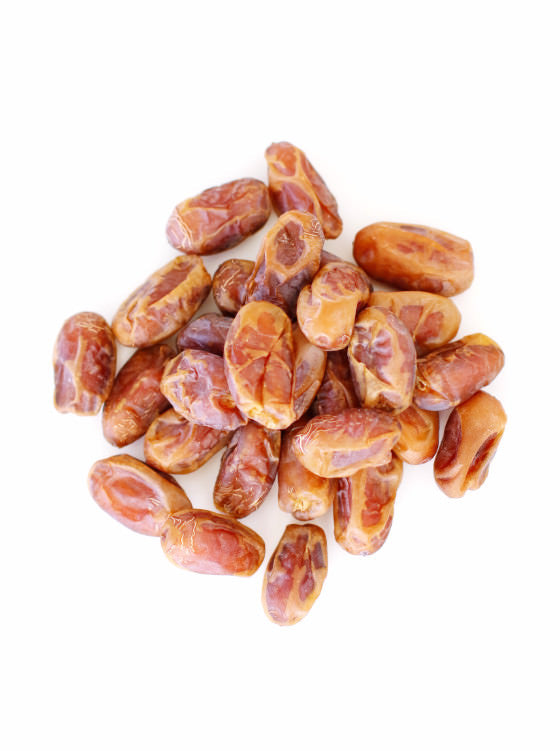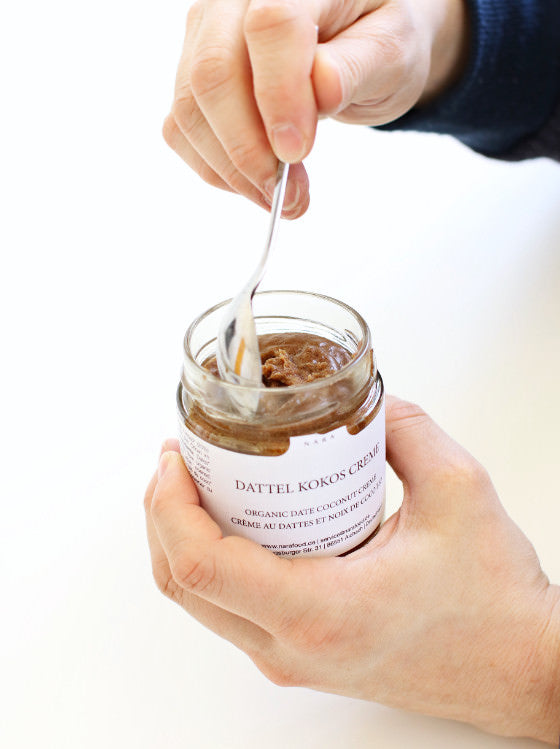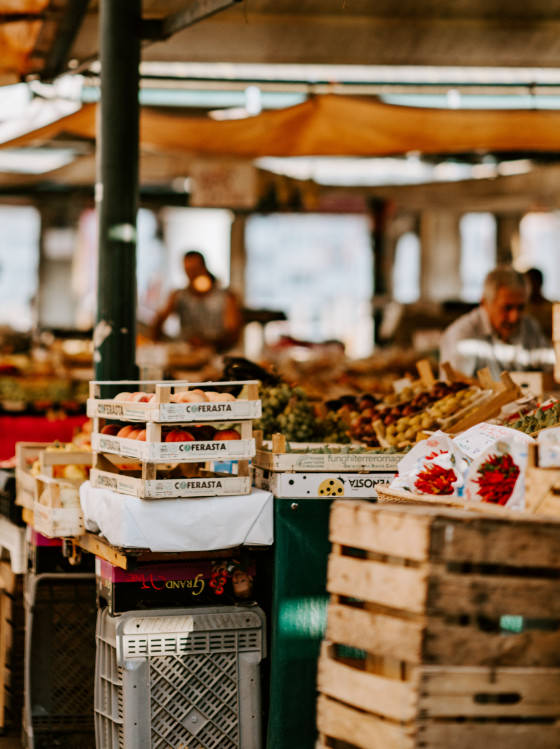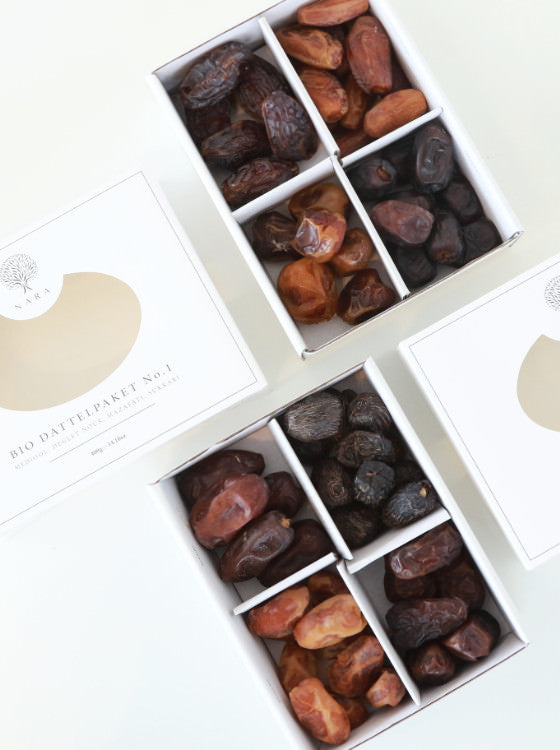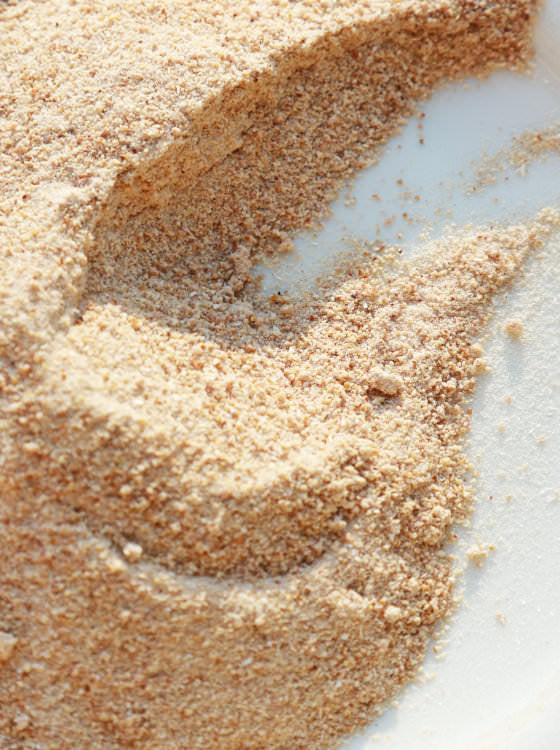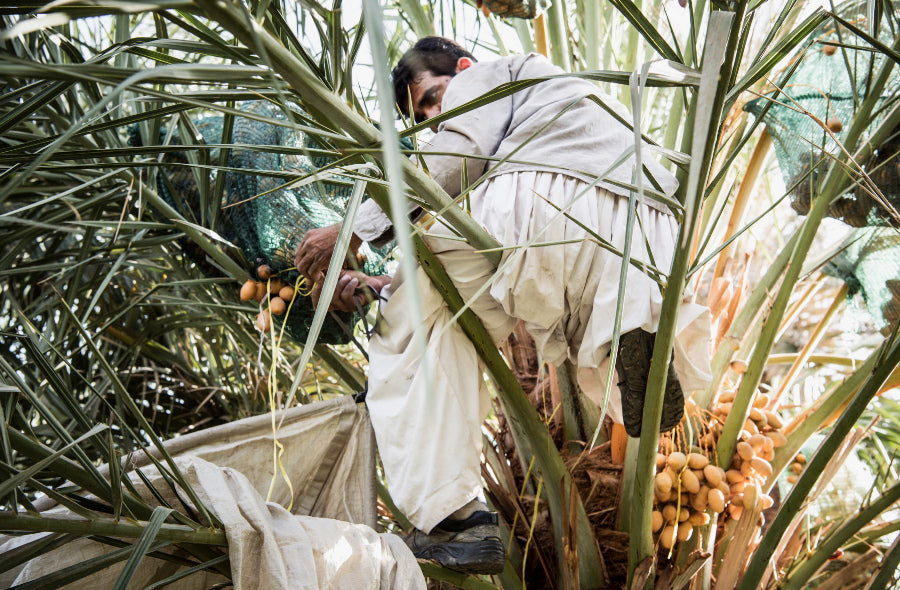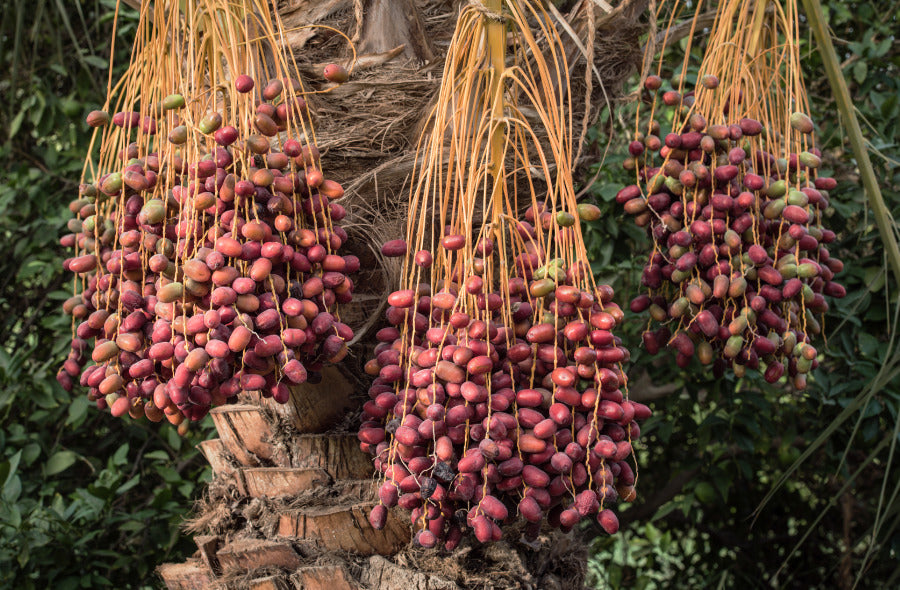Fresh and dried dates are not only a popular snack, but also an integral part of a healthy diet for many people. But while they provide sweetness and energy on our plates, an important question arises: what about their ecological footprint - and the use of pesticides in date cultivation?
A challenge, especially in dry regions
The date palm is one of the most important crops in arid and semi-arid regions. In countries such as Iran, Saudi Arabia and Tunisia, it not only offers economic prospects, but also provides the population with a nutrient-rich staple food.
However, the cultivation of this sweet power fruit is challenging: root diseases, high temperatures, water shortages and pest infestations cause problems for date farmers worldwide. To ensure stable harvests under these conditions, many large-scale date plantations therefore rely on synthetic agents to combat insects, diseases and weeds.
Conventional dates: These pesticides are used
- Insecticides, e.g. diflubenzuron, which stops the development of insect pests by inhibiting chitin synthesis.
- Fungicides, such as epoxiconazole - a pesticide that is intended to curb fungal diseases and has no longer been approved in the EU since 2019 (but is still used elsewhere).
- Herbicides, in particular glyphosate, which is used worldwide to control weeds.
Particularly problematic: methyl bromide (bromomethane) is still used in some countries of origin. This is a highly toxic fumigant that not only kills pests, but also damages the ozone layer. It has therefore long been banned in Germany.

Chemical exposure: effects on health and the environment
The use of chemical pesticides in date cultivation puts a strain on the entire ecosystem. It can impair the fertility of the soil, displace beneficial organisms, pollute water resources and endanger biodiversity in the long term.
Pesticide residues can also be found in dates after harvest, particularly in conventional produce from regions with less stringent controls. Although the EU specifies maximum residue levels in Regulation (EC) No. 396/2005, how consistently these are adhered to varies depending on the country of origin.
Although permitted quantities are considered harmless, hardly any research has been carried out into the combined effects and accumulation of various pesticides in the human body.
The following therefore applies: ingest as little residue as possible through food - especially if you eat it regularly! With organic dates, you are not only choosing for your health, but also for the preservation of the environment and the growing region.

No to pesticides in date cultivation: is that even possible?
Yes - and organic alternatives are becoming increasingly relevant. In organic date cultivation in particular, farmers use sustainable methods to control pests and promote plant health - completely without synthetic pesticides:
- Biological plant protection: the targeted use of beneficial insects such as predatory mites or parasitic wasps helps to maintain natural balances in the cultivation system.
- Mixed cultivation and biodiversity: Integrated cultivation with citrus trees or herbs can reduce pest pressure.
- Organic fertilization: Compost, biofertilizers or recycled materials strengthen soil fertility and make plants more resilient.
- Integrated pest management (IPM): This strategy combines various organic methods to make the use of chemicals largely superfluous.
How do we organize organic date cultivation at Narafood?
Our partner farms deliberately avoid the use of chemical pesticides. Instead, our local farmers use natural methods to keep insects, fungi, diseases and weeds away from our tasty date varieties.
For example, citrus trees were planted between the date palms on the Iranian farm. The essential oils of these trees deter many insects - and at the same time promote ecological balance. In Saudi Arabia, a natural fragrance powder is spread around the farm to prevent certain insects from settling there.
All the dates you buy from us (fresh and dried) are certified in accordance with the applicable EU organic guidelines. In addition, we set our own standards, which we are constantly developing together with our partner farms. Our aim is to work with nature rather than against it. We find inspiration for this in permaculture projects, such as the one in Iran, which create long-term fertile, healthy and resilient cultivation systems - in harmony with local conditions.

From the palm tree to shipping: quality at every step
As part of quality management, our date farmers regularly carry out careful inspections of the date panicles and random checks. If it is discovered that dates are infested with insects, the affected panicle is removed immediately.
By storing the dates at sufficiently cool temperatures after harvesting, we can prevent any insects in the dates from developing or multiplying.
We check the goods ready for dispatch thoroughly - for puncture marks, among other things. Insect infestation is not always visible from the outside, which is why we cannot always prevent a fruit with an insect from ending up in a pack, despite careful checks. In any case, however, we ensure that you receive dried and fresh dates of the best organic quality and with an aromatic taste.
Instead of using chemical pesticides, we rely on consistent prevention and close monitoring as part of our organic cultivation - as part of a well thought-out approach to nature and the product.
Dates without pesticides: tips for your purchase
The use of pesticides in the cultivation of imported dried fruit such as dates is a particularly important issue. If you value not only taste but also health and sustainability when buying dates, you can make a big difference with a few targeted decisions.
You should pay attention to this:
- Give preference to organic dates: Products from controlled organic cultivation are subject to strict guidelines - treating dates with pesticides is either prohibited or severely restricted there.
- Check origin: Transparent suppliers with direct contact to the farms usually act more responsibly. They can also provide more detailed information about the origin and production conditions.
- Consciously enjoy: Date cultivation often requires large quantities of water, especially in dry regions. Conscious consumption conserves resources - and at the same time you can set an example for responsible food handling!
- Watch out for additives: Natural dates are usually unsulphured, unsweetened and free from preservatives. This indicates that they have been carefully processed.
So: keep your eyes open when buying dates and enjoy high-quality, uncontaminated fruit!
Discover our sweet range in the store! Here you are guaranteed to find a date variety that will make your taste buds blossom - or try out different varieties with a tasting pack!
Enjoy the taste, your Narafood team!

